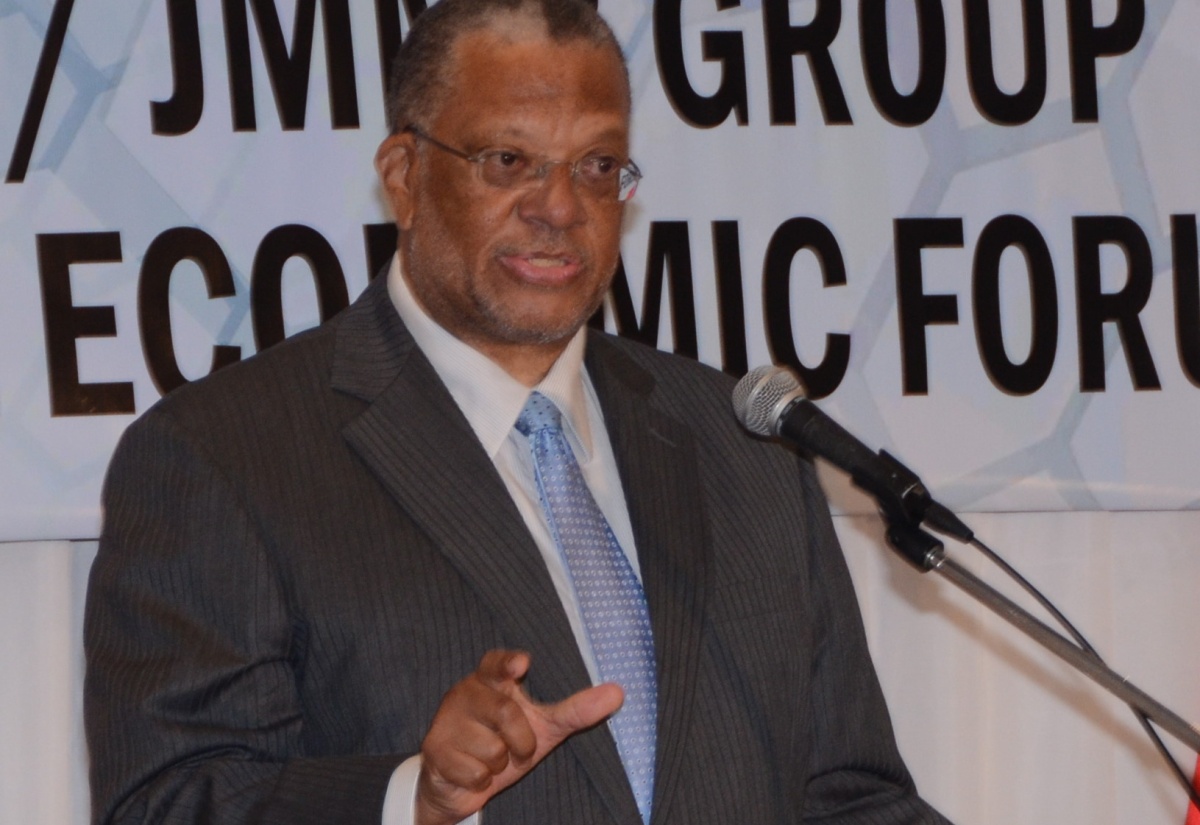Finance Minister Confident of Passing Ninth IMF Review
By: , July 8, 2015The Key Point:
The Facts
- Noting that Jamaica is midway through the EFF, the Minister said not only has the country met all of its obligations to successfully complete the previous eight reviews, “but I think we are seeing the results in terms of our national accounts.”
- Dr. Phillips said the challenge going forward is maintaining stability, “in order to achieve sustained growth.”
The Full Story
Finance and Planning Minister, Dr. the Hon. Peter Phillips, remains confident that Jamaica will pass the ninth review under the International Monetary Fund’s (IMF) four-year Extended Fund Facility (EFF).
Speaking at a Private Sector Organization of Jamaica (PSOJ) annual economic forum, held at the Jamaica Pegasus Hotel, New Kingston, on July 7, Dr. Phillips said having reviewed the preliminary outturns, “I think I can say that we will also successfully complete the ninth review when that (becomes) due.”
Noting that Jamaica is midway through the EFF, the Minister said not only has the country met all of its obligations to successfully complete the previous eight reviews, “but I think we are seeing the results in terms of our national accounts.”
“We are seeing (that) the balance of payments deficit, which was some 13 per cent of the Gross Domestic Product (GDP), is now down to 5.3 per cent, and we expect it to be lower by the end of this fiscal year. Our NIR, which in 2013 was a little bit more than US$800 million, and falling, is now three times that amount,” he noted.
Additionally, Dr. Phillips said the labour force has expanded; the rate of inflation has declined to its lowest rate in nearly 50 years; Foreign Direct Investments (FDIs) have increased substantially; the exchange rate has become competitive, “and we have received the recognition, not only of our multilateral creditors, but also the credit rating agencies have upgraded Jamaica’s credit rating.”
“We have also undertaken far-reaching (customs and tax) reforms, in collaboration with our stakeholders in the productive sector and, at the same time, begun efforts to secure greater rates of growth. We have been able to maintain basic stability of the Jamaican economic environment,” he added.
Dr. Phillips said the challenge going forward is maintaining stability, “in order to achieve sustained growth.”
Growth, he underscored, will result from “steady” reduction in the national debt, which he pointed out is currently 10 per cent lower, as a ratio of GDP, compared to the end of the 2011/12 fiscal year, with a projection for further decline.
“Growth is going to result from a combination of continued fiscal prudence; public sector reforms to reduce the transaction costs of those who invest and do business in Jamaica. It will also mean the efficient implementation of projects on the government’s side, especially where we interface with the private investor community,” Dr. Phillips said.
The forum, held under the theme: ‘Imperatives for Growth – Options and Opportunities’, also featured presentations and a panel discussion involving a wide cross section of public and private sector stakeholders.
They included: President and Chief Executive Officer, Port Authority of Jamaica, Professor Gordon Shirley; and Development Bank of Jamaica (DBJ) Chairman, Joseph M. Matalon.


